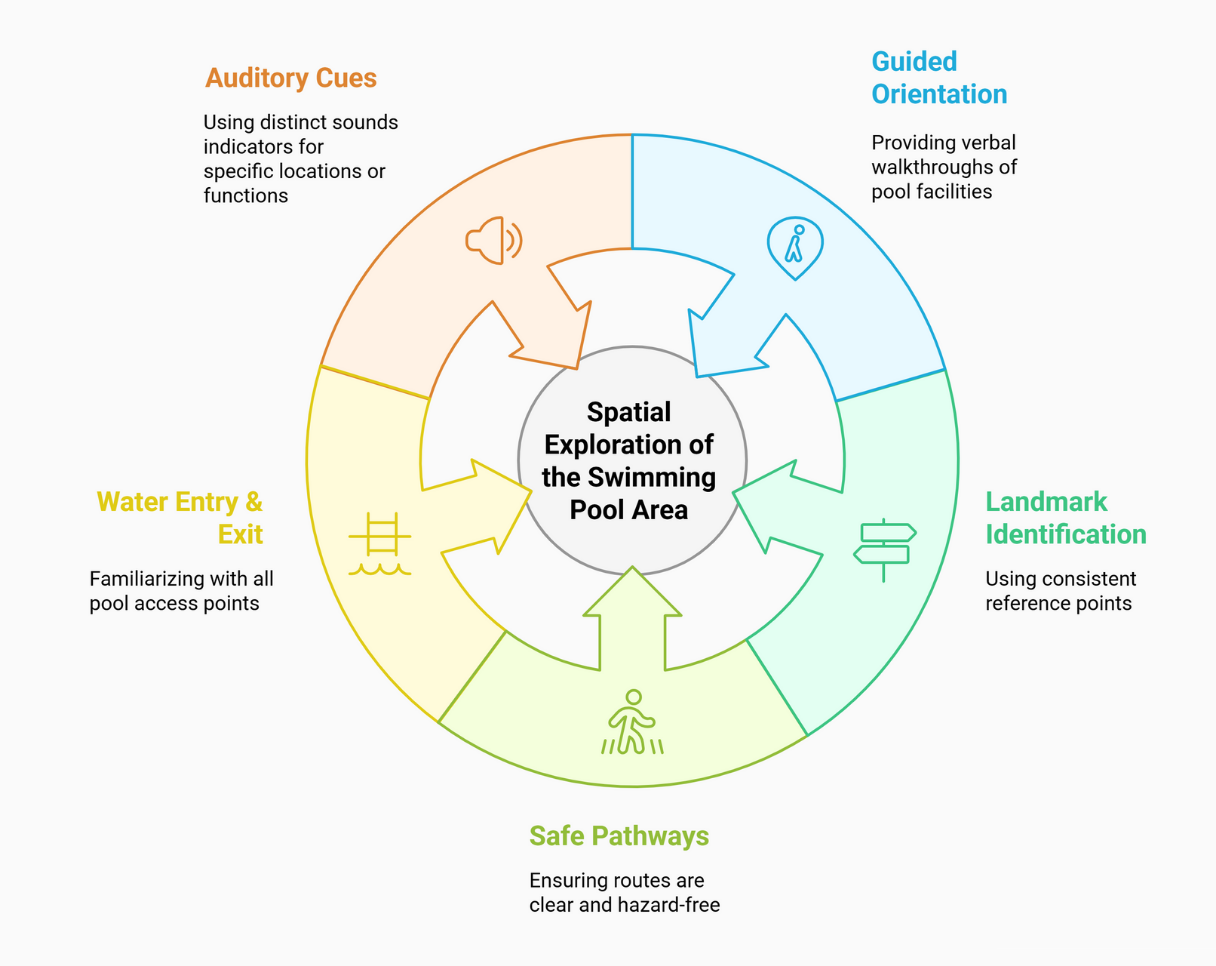About Lesson
THE SWIMMING POOL AREA: ADAPTED TIPS FOR SPATIAL EXPLORATION
The same tips presented in Module 2 can also be used for space exploration in the pool, with some adaptations:
1. Guided Orientation:
Provide a thorough verbal walkthrough of the pool facility. Include:
- Entrance, changing rooms, ramps, showers, and exits.
- Pool edges, ladders, and emergency areas (lifeguard station, etc.).
2. Landmark Identification:
Use consistent, easily distinguishable reference points. For example: “As you enter the changing room: lockers are on your left, showers on the right. Walk straight until the tactile marker ends, then turn right”.
3. Safe Pathways:
Ensure routes to and from the pool are:
- Clearly marked.
- Free from equipment or slip hazards.
- Reinforced with tactile or visual markers (e.g., contrasting tape, texture mats).
4. Water Entry & Exit:
Familiarize the child with all pool access points, such as ladders, sloped ramps, zero-depth entries, and pool edges.
5. Auditory Cues:
Use distinct sound indicators for changing room entrances, pool access points, emergency exits. Each sound should correspond to a specific location or function, aiding navigation and orientation.
